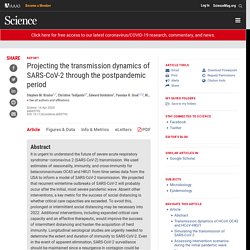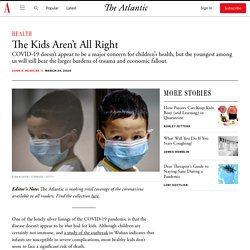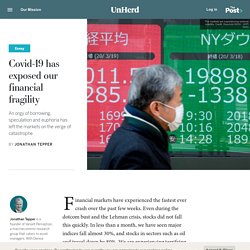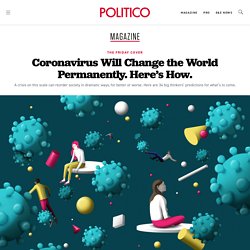

Projecting the transmission dynamics of SARS-CoV-2 through the postpandemic period. Abstract It is urgent to understand the future of severe acute respiratory syndrome–coronavirus 2 (SARS-CoV-2) transmission.

We used estimates of seasonality, immunity, and cross-immunity for betacoronaviruses OC43 and HKU1 from time series data from the USA to inform a model of SARS-CoV-2 transmission. We projected that recurrent wintertime outbreaks of SARS-CoV-2 will probably occur after the initial, most severe pandemic wave. Absent other interventions, a key metric for the success of social distancing is whether critical care capacities are exceeded. To avoid this, prolonged or intermittent social distancing may be necessary into 2022. The ongoing severe acute respiratory syndrome–coronavirus 2 (SARS-CoV-2) pandemic has caused nearly 500,000 detected cases of coronavirus disease 2019 (COVID-19) illness and claimed over 20,000 lives worldwide as of 26 Mar 2020 (1).
A key metric for the success of social distancing interventions is whether critical care capacities are exceeded. Let’s talk about the fact that both the attack rate and the death rate among the young is indeed very low with COVID19, unlike most prior pandemics. And let’s speculate about some of the biological reasons. 1/ What the Coronavirus Will Do to Kids.
The country has learned this lesson the hard way before.

In 2005, when Hurricane Katrina and the crucial failures of federal levees devastated the Gulf Coast and the city of New Orleans, a generation of young people bore the brunt of the long-term damage. The storm and the flood were only the first in a chain reaction that uprooted children from homes and communities, and evacuated many of them to brand-new places across the country. They lost family members and friends, endured bullying in new places, suffered high rates of homelessness and violence, and faced major disruptions in learning and support traditionally provided by school. Read: The lost children of Katrina The body of research conducted in the years since Katrina indicates that those effects have endured over time, especially for poor children and children of color. “Disasters last a really long time in the lives of children,” Fothergill told me by phone.
Covid-19 has exposed our financial fragility. Financial markets have experienced the fastest ever crash over the past few weeks.

Even during the dotcom bust and the Lehman crisis, stocks did not fall this quickly. In less than a month, we have seen major indices fall almost 30%, and stocks in sectors such as oil and travel down by 80%. We are experiencing terrifying daily declines not seen since the 1929 stock market crash that preceded the Great Depression. We are at a watershed moment: the coronavirus Covid-19 is a catalyst fast bringing many long simmering problems to the boil. It is exposing the creaking financial systems around us and it will change the way economies function.
Epidemiologists tell us that when it comes to the virus, we are looking at a once in a century event. We do not have good data on what the stock market did during the 1918 flu, but we do know that it led to a severe recession. The recession is likely to be very sharp and but brief. Forest fires are a useful analogy.
By Christopher Rhodes By Jesse Norman. Coronavirus Will Change the World Permanently. Here’s How. Revived trust in institutions.Michiko Kakutani is author of the 2018 bestseller The Death of Truth and former chief book critic of the New York Times.

The coronavirus pandemic, one hopes, will jolt Americans into a realization that the institutions and values Donald Trump has spent his presidency assailing are essential to the functioning of a democracy—and to its ability to grapple effectively with a national crisis. A recognition that government institutions—including those entrusted with protecting our health, preserving our liberties and overseeing our national security—need to be staffed with experts (not political loyalists), that decisions need to be made through a reasoned policy process and predicated on evidence-based science and historical and geopolitical knowledge (not on Trump-ian “alternative facts,” political expediency or what Thomas Pynchon called, in Gravity’s Rainbow, “a chaos of peeves, whims, hallucinations and all-round assholery”).
Fast forward to 2020. Protecting lives in protecting economy.
Social Impacts. Second Wave.